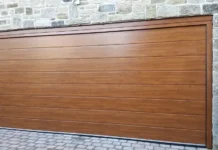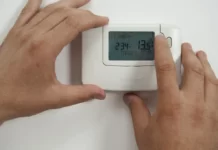Water is the main service in any city, making it the most important thing to consider for renters, commercial property owners, and homeowners. Because of the financial cost, a high water bill is alarming, however, it also shows that the precious water might get wasted somewhere.
Flushing is not something you might consider twice. Actually, it is a good habit to opt for. But suddenly every flush sounds like money going right down the drain when you get last month’s water and sewer bill.
The sewer bill is dependent on the amount of water used. If the bill has increased, it means there is an increase in the amount of water usage based on the figures provided by the water companies to the city.
There are many reasons to consider why is my sewage bill so high? Let’s get into the details.
Difference between sewer and water charges?
The most important thing is to understand how those numbers on your bill get to the utility companies. Gallon is the charge of whatever water comes out of any faucet in your residence. While whatever water gets down any drain of your house is known as wastewater and is charged usually by the gallon.
If you don’t get a separate sewer bill, that doesn’t actually mean you are not getting charged or you are not paying for it. You get a lump-sum amount, as some water utility companies will include your sewer charges in your water bill.
To exactly know what you are getting charged for each service, look for the words like collection, sewage, and treatment in the itemized section of your invoice.
Why is my sewer bill so high?
As your sewer bill is calculated on the amount of water that drains, it is easy to ignore the activities that are affecting your budget. Below are some of the reasons for water wastage.
1. Taking long showers
You are probably charged quite a bit during that 30-minutes, steam-filled and nice shower. Almost 2 gallons per minute dump out on the average shower. Each time when you take one of those half-hour showers, about 60 gallons of water goes right into the sewer system.
2.Doing your laundry
Laundry days can increase the wastage of water. You can expect to use between 15-30 gallons of water per load even if a highly efficient machine is used. On-efficient and older machines use 45 gallons of water per load.
3. Washing your dishes
Modern technology dishwashers are more efficient, using 4-6 gallons of water per cycle. Although this is not much, it can add up if you are running a dishwasher on a regular basis.
Unluckily, hand washing also wastes a lot of water in the sewer. About 2 gallons of water are dumped in the faucet every minute. And if you let the water flow while scrubbing the dishes, pans, and pots, you could end up wasting a lot of water.
4. Running/ Leaky Toilets
About 31 percent of indoor water is used by the toilet in an average American home. It is not a surprise that a leaky or running toilet wastes almost 6000 gallons every month and increases the bill.
5. Leaky fixtures and faucets
This is another common cause for the increase in water bills. The more water gets wasted with heavier leakage. Like, 17 gallons of water is leaked through a faucet over the whole day. Fortunately, a leaky fixture is considerably easy to spot and fix.
To identify a leak at the fixture, a simple visual check of your showerheads, faucets and other fixtures is enough. Commonly the leakage is because of a faulty rubber washer. Mostly, you can shut off the supply of water to leaky fixtures and faucets. To replace a new one, unscrew the handle and remove the bad washer.
6. Irrigation Leaks
All leaks are not indoors. For landscaping, if you have an irrigation system, a loose joint or a line crack would cause leakage of water even when the system is off.
To find the leaks, you must check your lawn for unusual grassy areas or damp patches that are comparatively lush than the surroundings. Make sure the leakage signs are similar to the leakage signs in a lateral line.
Consult a professional plumber, to fix this kind of leak or replacement of affected irrigation lines.
How to lower your water and sewer bill?
Here are some ways to lower down your water and sewer bill. In the bathroom, you can
- Upgrade to a low-flow toilet or use a fill cycle diverter to save water.
- Fix the leaks.
- Installation of a low-flow showerhead.
- Avoid baths unless completely necessary, don’t shower at the gym or take long showers.
In the kitchen, you can
- Fix leaks in the sink and faucet.
- Installation of a motion sensor faucet or a low flow faucet.
- Instead of hand washing, use a dishwasher.
- To avoid running the faucet till the water is cold, store drinking water in the fridge.
In the yard, you can
- Buy a nozzle for your hose.
- Put a cover on your pool.
- Mow your lawn in a high setting.
- When there is rain in the forecast, turn off the sprinkler system.
In the laundry
- Run the washer till full loads
- Skip the extra rinse
- Move to an energy-efficient washing machine.
The Bottom Line
I hope you have got cleared with your question about why my sewer bill is so high? Water is the main energy source and is required for many house chores. But the increase in water usage can ultimately increase the bill. The bill can be minimized by reducing the use of water by following the different practices mentioned.













